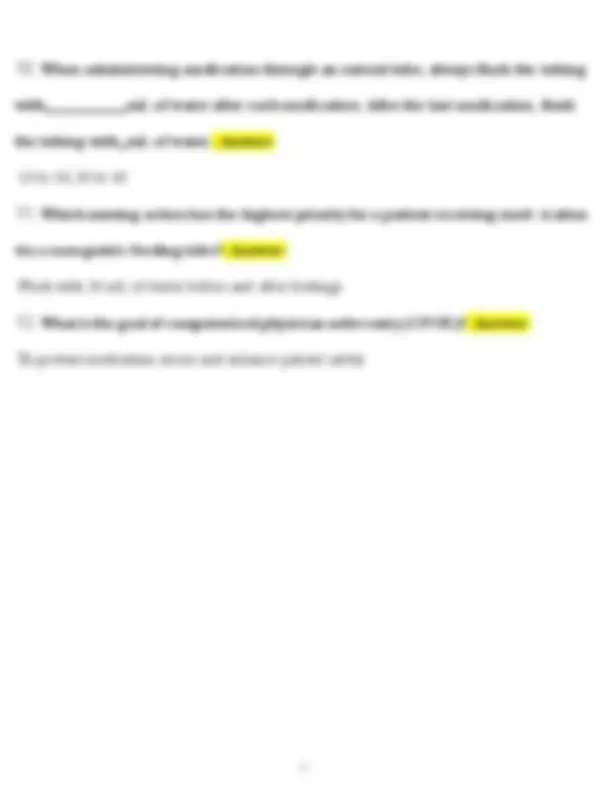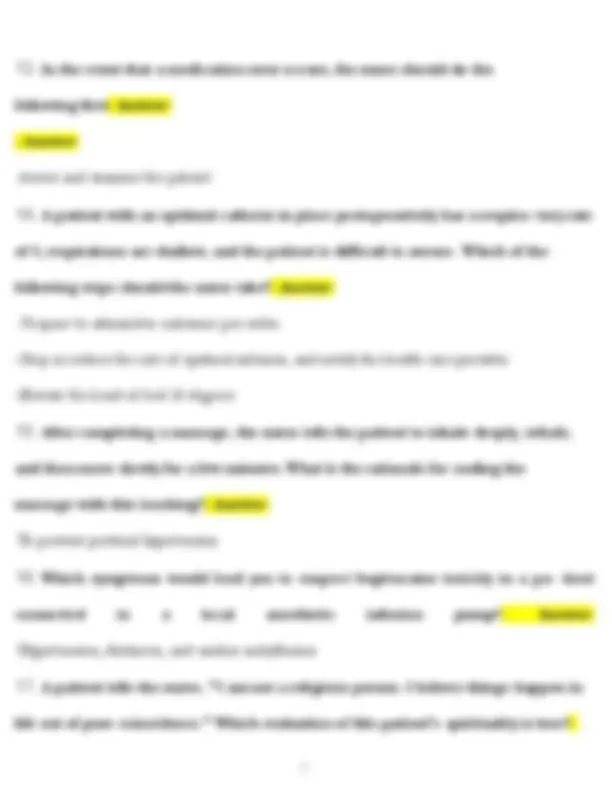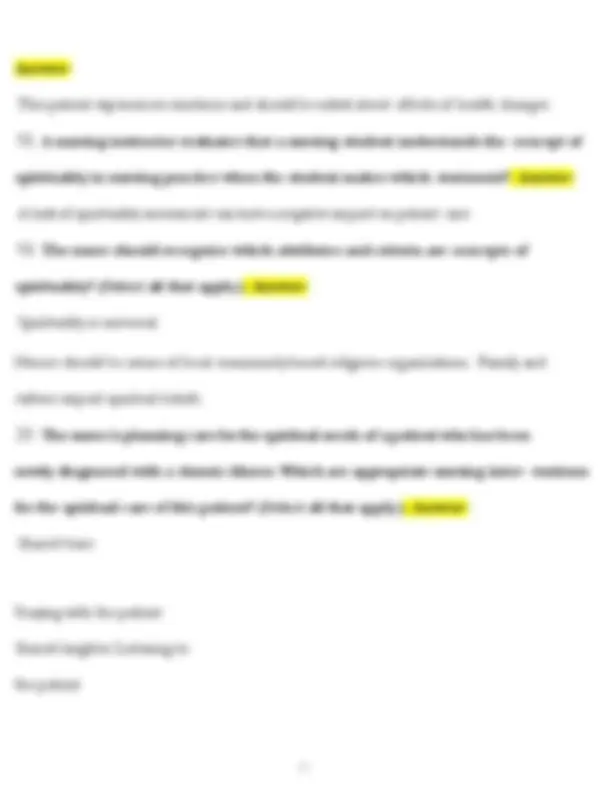





Study with the several resources on Docsity

Earn points by helping other students or get them with a premium plan


Prepare for your exams
Study with the several resources on Docsity

Earn points to download
Earn points by helping other students or get them with a premium plan
Community
Ask the community for help and clear up your study doubts
Discover the best universities in your country according to Docsity users
Free resources
Download our free guides on studying techniques, anxiety management strategies, and thesis advice from Docsity tutors
A set of study questions and answers for nurs 1871, covering topics such as degenerative brain diseases, intracranial regulation, pain management, medication administration, and spiritual care. It offers a valuable resource for students preparing for exams, providing insights into key concepts and potential exam questions. Multiple-choice questions and answers, addressing various aspects of nursing practice related to patient care.
Typology: Exams
1 / 6

This page cannot be seen from the preview
Don't miss anything!




Study group questions for NURS 1871 Exam Questions With Correct Answers
A child must experience mobility so he or she can explore and learn about the world. Immobility
can cause intellectual and psychomotor deficits because children need to experience mobility to explore the world. Immobility does not have a direct effect on growth, speech, hearing, or play.
Answer- This patient experiences emotions and should be asked about effects of health changes.
Nurses should be aware of local community-based religious organizations. Family and culture impact spiritual beliefs.
Praying with the patient Shared laughter Listening to the patient